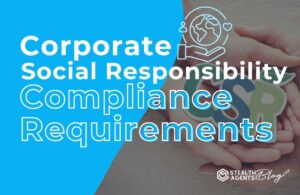cNavigating business liability coverage can feel like a legal labyrinth.
Yet, understanding this essential safeguard is crucial for any thriving business.
This post demystifies business liability coverage, vital for operations across all sectors, from small startups to corporate giants.
Additionally, explore key Revenue Streams in Business Terms to enhance your financial strategy.
Demystifying Business Liability Coverage
Your business’s liability coverage is the metaphorical security blanket that shields you from the gritty realities of legal proceedings and financial woes. Whether you’re an entrepreneur launching your first venture or a seasoned professional seeking a refresher, knowing the ins and outs of liability coverage is fundamental.
What is Business Liability Coverage?
In layman’s terms, business liability coverage is an insurance safeguard that protects a company’s assets and pays for obligations—both legal costs and compensations—incurred if you or your employees are held legally responsible for physical injury or property damage to others. It’s the financial cushion that keeps your business from teetering on the brink of a fiscal abyss in the wake of unforeseen events.
The Importance of Understanding Coverage Requirements
Understanding your business’s liability coverage requirements is akin to building a foundational business plan. It ensures you’re legally compliant, financially secure, and prepared for the worst. By the end of this post, you’ll not only be familiar with the various forms of liability coverage but also equipped to make informed choices that benefit your business in the long run.
Unpacking Different Types of Business Liability Coverage
Just as no two businesses are the same, the liability coverage they require isn’t one-size-fits-all. Here’s a breakdown of the most common forms:
General Liability Insurance
This is the Swiss army knife of business liability coverage, designed to be a catch-all. It protects against a range of common lawsuits, from bodily injury to property damage to advertising mistakes.
Professional Liability Insurance
For businesses that provide services or consultation, professional liability insurance, also known as errors and omissions insurance, shields against negligence claims that stem from inadequate services.
Product Liability Insurance
Manufacturers, wholesalers, and retailers, listen up. Product liability insurance is your lifeline. It covers you against defects in products that cause harm or damage.
Cyber Liability Insurance
In today’s digital age, cyberattacks are as common as coffee runs. Cyber liability insurance cushions the blow from data breaches, including customer information leaks and related legal ramifications.
This comprehensive suite of coverages represents just the tip of the iceberg. Each type can be fine-tuned and combined to provide the exact coverage your business needs, given its unique circumstances.
The Crucial Factors that Influence Your Coverage Requirements
Do you find yourself asking, “how much is enough?” The answer lies in a complex interplay of factors specific to your business model:
Industry-Specific Risks
Different sectors pose different risks. A construction company will likely incur more bodily injury risks than an IT consulting firm, where errors and omissions might be the primary concern.
Business Size and Revenue
It’s an unfortunate reality that the bigger the business, the larger the target. Business size and revenue streams directly impact the potential size of a lawsuit.
Legal Requirements
Municipal, state, and federal laws dictate minimum coverage based on your industry, and these require periodic reviews to ensure compliance, as they’re subject to change.
Collectively, these variables coalesce to provide a numerical depiction of your ideal coverage. Understanding and keeping them in mind is the first step toward exercising optimal prudence.
The Bounty of Adequate Coverage
Investing in robust business liability coverage is not just a smart financial move—it’s a strategic investment in your business’s longevity and reputation.
Financial Protection
In the event of a lawsuit, coverage means the difference between a business as usual approach and slashed profits, crippled cash flow, and potentially, bankruptcy.
Reputation Management
Word travels fast, and a scandal can unravel even the most robust brands. Adequate liability coverage helps ensure your reputation bounces back as your business soldiers on.
Compliance with Regulations
Laws and regulations are continually evolving. Adaptable coverage keeps you ahead, maintaining your business’s license to operate.
These protective layers reinforce your business against uncertainty, highlighting the tranquil peace of mind that accompanies procedural caution.
Common Mistakes Businesses Make Regarding Liability Coverage
Even the most clued-in business professionals make missteps in navigating their coverage. Here’s what to avoid:
Underestimating Coverage Needs
Don’t cut corners. Underestimating your liability coverage needs can lead to dire consequences that could have been avoided.
Neglecting Specific Risk Areas
Be thorough. Every niche has its hazards, and skimping in a particular area can prove a costly oversight.
Failing to Update Coverage
Stagnation is the enemy of preparedness. Regular updates to your coverage ensure it remains aligned with your business’s trajectory.
By steering clear of these traps, your business can negotiate claims smoothly and maintain its forward momentum.
Crafting Your Optimal Coverage Blueprint
Tailoring your business liability coverage is an art form, a delicate dance between risk and resource:
Conducting a Risk Assessment
Take stock of your business’s activities and the risks they entail. This reality check anchors your coverage decisions in tangible scenarios.
Consulting with Insurance Professionals
No one expects you to be an insurance encyclopedia. Professionals are well-versed in the nuances of coverage and can provide invaluable insight.
Reviewing Policy Terms and Conditions
Read the fine print. Policy terms can hide traps that might negate your coverage at the wrong moment.
This meticulous process of evaluation and refinement ensures your coverage is as comprehensive as it needs to be, laying the groundwork for secure business operations.
A Tailored Approach is the Best Approach
Your business is as unique as a snowflake, and treating it as such in terms of liability coverage brings an unprecedented level of protection. By following the guidance provided in this post, you will not only understand the coverage requirements your business faces but also be well on your way to ensuring that your commercial voyage is smooth and secure. After all, the prowess of a vessel lies not just in its voyage but in its ability to weather the storm.
Takeaways
It is imperative to recognize that business liability coverage is not a static requirement; rather, it is an ever-evolving instrument that must adapt to the perpetual shifts in your business’s ecosystem.
Remember: robust liability coverage is not a substitute for sound business practices, but it does offer a parachute, should your company’s trajectory veer unexpectedly.
Start re-evaluating your business’s liability coverage today. The robust protection it affords is the cornerstone of thriving in the volatile expanse of the business world.
Like a seasoned navigator, chart a course that weaves through the labyrinth of legalities with assurance, leverage, and intelligence. Your business and your peace of mind are counting on it with the help of a construction virtual assistant.












